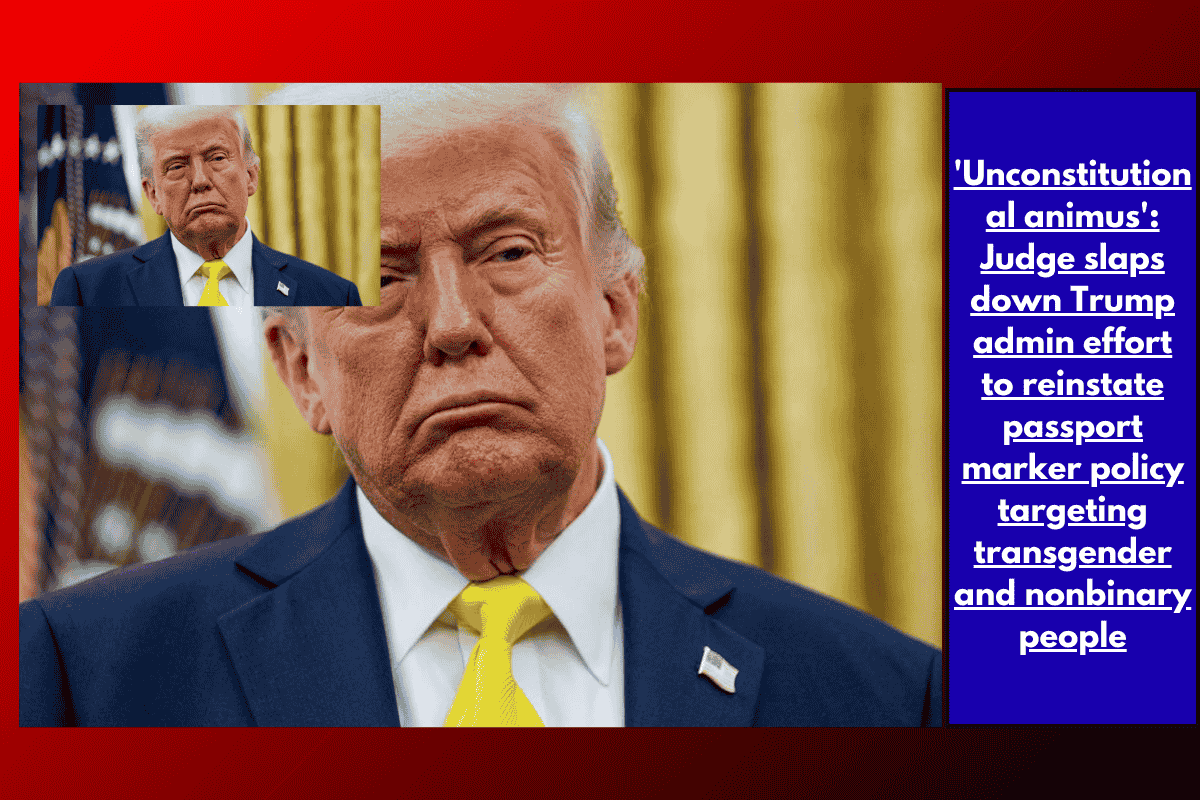The Trump administration has faced a second legal setback in as many months over a policy change regarding the sex marker designations on U.S. passports for transgender and nonbinary individuals. This time, U.S. District Judge Julia Kobick, appointed by President Joe Biden, ruled against the government’s attempt to reinstate a previous passport policy that critics say discriminates against transgender and nonbinary people.
The Controversial Passport Policy
The controversy centers around changes made to U.S. passport policy by the U.S. Department of State, which previously allowed transgender individuals to select their sex marker (either male ‘M’ or female ‘F’) based on gender identity or sex assigned at birth. Additionally, intersex, non-binary, and gender non-conforming individuals were allowed to select ‘X’ as a sex marker on their passports.
Under the revised policy, however, the State Department only permits ‘M’ or ‘F’ as sex markers on passports, removing the option for non-binary individuals. The revised policy also requires that passports reflect the individual’s sex assigned at birth rather than gender identity.
Judge’s Ruling on the Policy
In late June, Judge Kobick issued an injunction blocking the U.S. Department of State from enforcing the new restrictions on passport sex markers. The judge determined that the changes were likely rooted in “unconstitutional animus” towards transgender Americans, which would likely violate constitutional rights. She also stated that the policy could be considered arbitrary and capricious under the Administrative Procedure Act, which governs federal agencies.
On Thursday, after the Department of Justice moved to dissolve the injunction and continue the policy changes pending appeal, Judge Kobick again ruled against the government. The government had referenced a recent U.S. Supreme Court ruling regarding Tennessee’s ban on certain medical care for transgender minors, arguing that it might alter the legal landscape. However, Kobick found that the government failed to meet the burden of proof necessary to change the injunction, stating the policy changes were unjustified and discriminatory.
Legal Framework and Constitutional Review
The Department of Justice had argued that the passport policy should be subject to “rational basis review,” the lowest level of scrutiny for legal challenges. This would typically favor the government. However, the judge was not convinced, noting that the government had failed to address her original reasoning regarding the unconstitutional animus behind the policy.
The judge’s ruling highlighted the lack of substantial changes in law or facts since the original injunction was issued. She reiterated that the policy was likely to harm transgender and nonbinary individuals, underscoring the need for a more thorough review.
The Broader Context
The passport policy dispute stems from President Donald Trump’s Executive Order issued on his first day in office, titled “Defending Women From Gender Ideology Extremism and Restoring Biological Truth to the Federal Government.” This order declared a federal policy to “recognize two sexes, male and female” and asserted that sexes are “not changeable” and are “grounded in fundamental and incontrovertible reality.”
The Ongoing Appeal
Following Judge Kobick’s latest ruling, the government added the district court’s decision to the appeal already pending before the First Circuit Court of Appeals. The case will continue to move through the legal system, with both sides awaiting a final determination.














